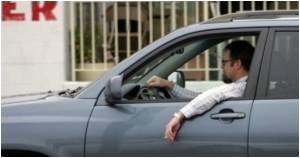China's capital Beijing, is always grappling with traffic jams and now all eyes are on the 'Super Bus' to relieve traffic woes.

"We're going to start laying down test tracks along a six-kilometre (four-mile) stretch towards the end of the year," Song Youzhou, the chief executive of design firm Shenzhen Hashi Future Parking Equipment, told AFP on Tuesday.
"From the second half of 2011, we're planning to test the bus with passengers on board," he said, noting that after a full year of trial runs, authorities would make a decision on whether to use the bus on a wide scale.
Song said Hashi was in talks with three Chinese carmakers to produce the eco-friendly bus, which runs on both electricity and solar power.
Authorities hope eventually to install 180 kilometres of "straddle bus" lines including a route to the capital's international airport, Song told the official Global Times.
Song said the "super bus" could ease traffic congestion by up to 30 percent, as it does not take up actual road space, but special tracks would have to be put down, elevated bus stops built and new traffic signals developed.
Song said the bus had to be tested with car drivers in real-time situations to detect any possible problems.
The head of the Beijing Transportation Research Centre, Guo Jifu, warned this week that traffic in the capital could slow to under 15 kilometres an hour on average if further measures were not taken to limit the number of cars.
Private cars are currently kept off Beijing's roads for one day per week depending on licence plate numbers.
Beijing's air is among the most polluted in the world, and the problem is getting worse amid high demand for private vehicles from its increasingly affluent residents.
Source-AFP
 MEDINDIA
MEDINDIA




 Email
Email




